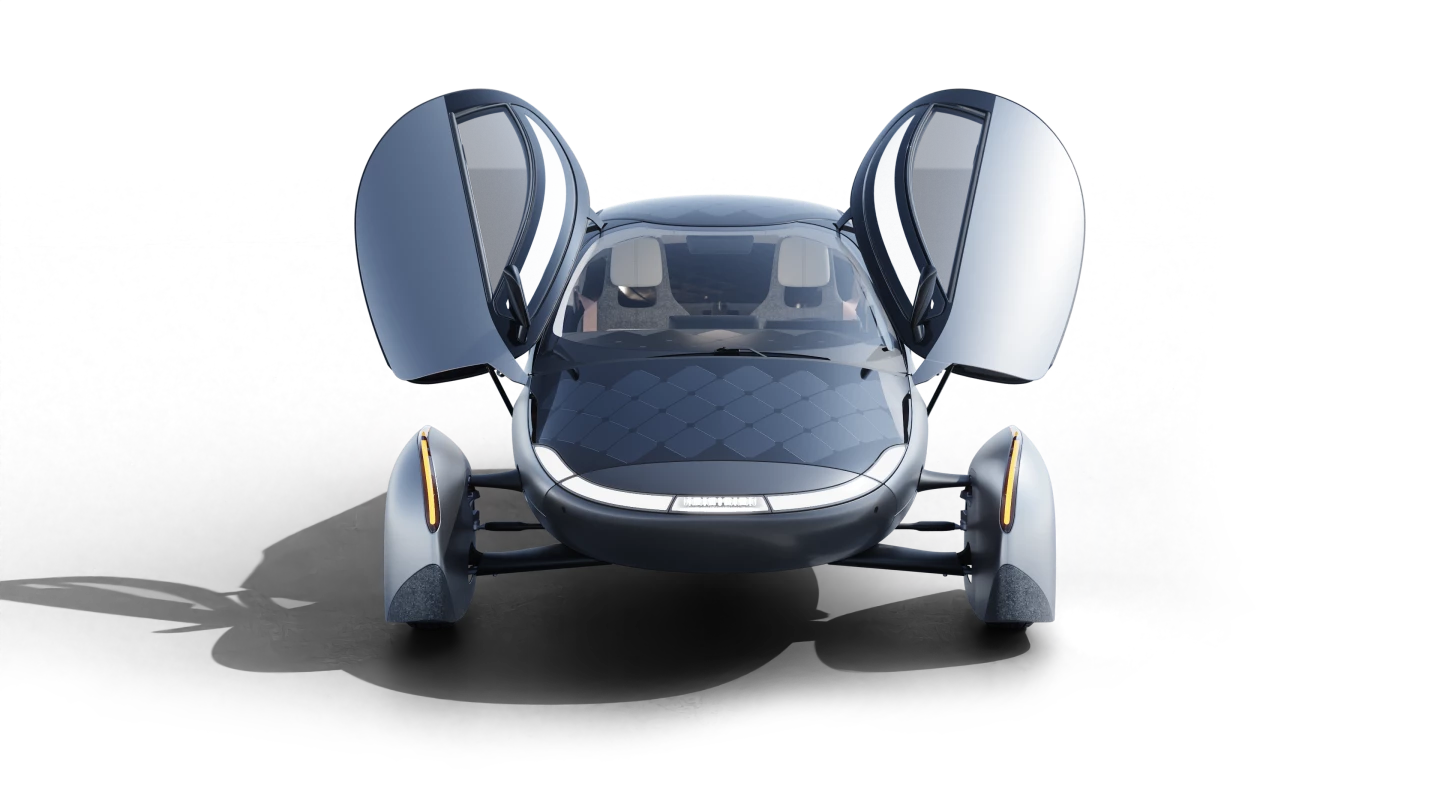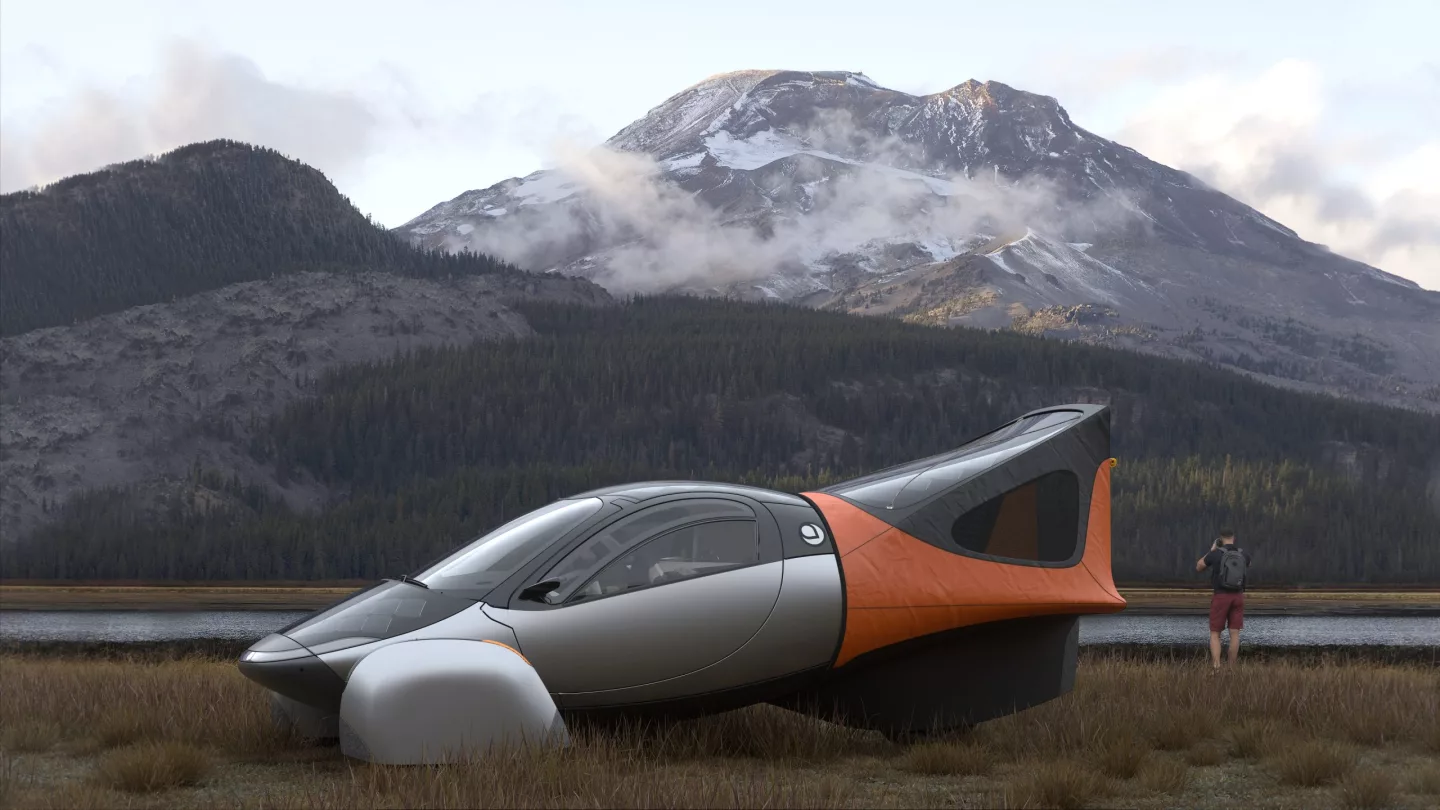A futuristic-looking electric vehicle that was launched by a Californian startup way back in 2007 is finally on the road to production. Following a year-long crowdfunding effort, the first 2,000 Aptera Launch Edition solar EV production slots have now been taken.
Looking like something straight out of a sci-fi movie, the two-passenger vehicle was designed to be much more than a smooth-lined, teardrop-shaped head-turner, it was developed for super low drag and maximum fuel efficiency.
The original Typ-1 was to be made in two variants – a hybrid and an all-electric, the former boasted a fuel economy of 300 miles per gallon while the latter having a per-charge range of 120 miles (190+ km) and a top speed in the region of 90 mph (145 km/h). Solar cells embedded in the roof provided enough power for an always-on climate control system.
The front-wheel-drive three-wheeler EV rolled into pre-production prototype by early 2009 but the inevitable delays began to creep in, and by 2011 the company had run out of development cash and was forced to close its doors.

Another attempt to get the Aptera electric and hybrid models into production was made a couple of years later, after the company's IP was acquired by China's Zhejiang Jonway Group but nothing much happened. The original co-founders reclaimed everything in 2019, and the road to production began again.
As the vital job of fundraising started anew, the team introduced a new "never charge" take on the Aptera – a solar-electric vehicle with a projected range of up to 1,000 miles (~1,600 km) on a full charge of its batteries, with the 180 body-integrated photovoltaic cells expected to harvest enough solar energy for up to 45 miles (72.4 km) of daily travel without needing to plug in.
The company inked a deal with Slovenia's Elaphe for in-wheel electric motors in 2022, along with batteries from Eve Energy and PV cells from Maxeon Solar Technologies. In January 2023, Aptera revealed its Launch Edition with an "ultra-light" composite body featuring 700 watts of solar cells, a drag coefficient of 0.13, a motor in each wheel promising a sprint to 100 mph (160 km/h) in four seconds and a top speed of 101 mph (162.5 km/h), and a per-charge range of 400 miles (643 km) from battery packs now supplied by CTNS.

The reveal was quickly followed by an Accelerator Program, where early adopters were invited to invest at least US$10,000 to secure the first 2,000 reservation slots. That funding effort has now concluded, with more than US$33 million added to a funding pot of over $100 million raised by the company over the last couple of years.
The money will be used for "the procurement of low-volume tooling and the buildout of the company’s first production-intent vehicles which will be used for testing and validation." More fundraising will then follow to bring the vehicle into high-volume production.
The Accelerator window for the preconfigured Launch Edition has now closed, but folks can still put down $100 to reserve a future production Aptera SEV, which can include custom options such as interior/outer colors, battery range, PV panel configuration and drive setup. The current price tag is shown as $33,200.

"Thanks to our solar mobility movement, we’re changing how world-shaping ideas come to life," said company co-founder and co-CEO, Chris Anthony. "Not just how they are funded, but how communities are built around them to ensure a positive impact on our society and planet."
"When we first launched Aptera as a solar mobility company, we were amazed by the overwhelming support from thousands of prospective Aptera owners. With over 46,000 reservation holders, we are dedicated to securing the remaining funds required for scalable, high-volume production of our solar EV."
Source: Aptera









